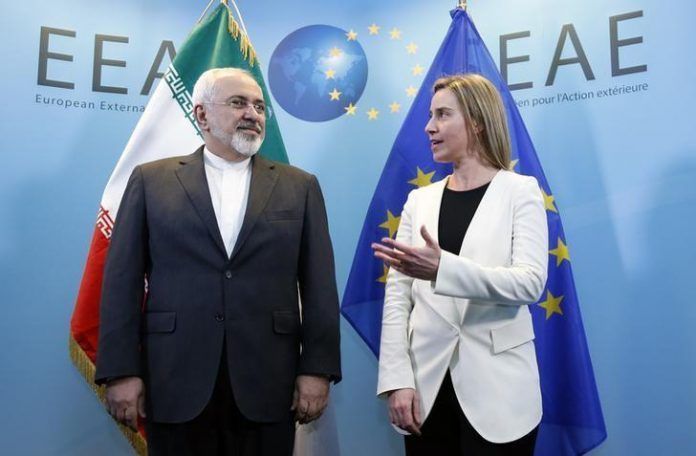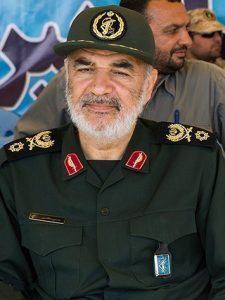
ANKARA, May 10 (Reuters) – European countries are powerless to salvage the nuclear deal with Iran after the United States pulled out, the deputy head of the elite Iranian Revolutionary Guards (IRGC) said on Thursday.
Britain, France and Germany said they remained committed to the deal despite Tuesday’s decision by U.S. President Donald Trump to withdraw.
But Brigadier General Hossein Salami said Europe “cannot act independently over the nuclear deal,” the semi-official Fars news agency quoted him as saying.
Iranian President Hassan Rouhani said on Tuesday that Tehran would remain in the 2015 agreement, though Europe had only a “limited opportunity” to preserve it.
On Wednesday Supreme Leader, Ayatollah Ali Khamenei, cast doubt on the ability of the European signatories to guarantee Tehran’s interests, adding: “I do not trust these countries either.”

Khamenei has the final say on all state matters and commands the loyalty of the IRGC, which has huge political and economic influence domestically.
Salami said Iran’s enemies were not seeking military confrontation. “They want to pressure our country by economic isolation … Resistance is the only way to confront these enemies, not diplomacy,” Fars quoted him as saying.
Trump also said on Tuesday he would revive U.S. economic sanctions against Iran, penalising foreign firms doing business with Tehran and further undermining what he called “a horrible, one-sided deal that should have never, ever been made”.
Europeans fear a collapse of the deal could raise the risk of deepening conflicts in the Middle East.
Early on Thursday, Iranian forces launched their first attack on Israel from inside Syria, firing rockets at army bases in the Golan Heights, Israel said.
That prompted one of the heaviest Israeli barrages against Syria since the conflict there began in 2011.
The pact, the signature foreign policy achievement of Trump’s predecessor Barack Obama, was designed to prevent Iran developing a nuclear bomb in exchange for lifting most sanctions that had crippled its economy. Sanctions were removed in 2016.
Trump complained that the agreement failed to address Iran’s ballistic missile programme, its nuclear activities beyond 2025 or its role in conflicts in the Middle East, where Tehran has been involved in a proxy war from Lebanon to Yemen for decades.
In defiance of Western pressure to curb the missile programme, Tehran says it is essential precautionary defence against the United States and other adversaries, primarily Gulf Arab states and Israel.
“Exiting the deal and their concerns over Iran’s missile work are excuses to bring our nation to its knees,” Salami said.
The IRGC’s overseas arm, the Quds force, operates in Iraq, Syria and Yemen among other places.
(Writing by Parisa Hafezi Editing by Gareth Jones and John Stonestreet)

